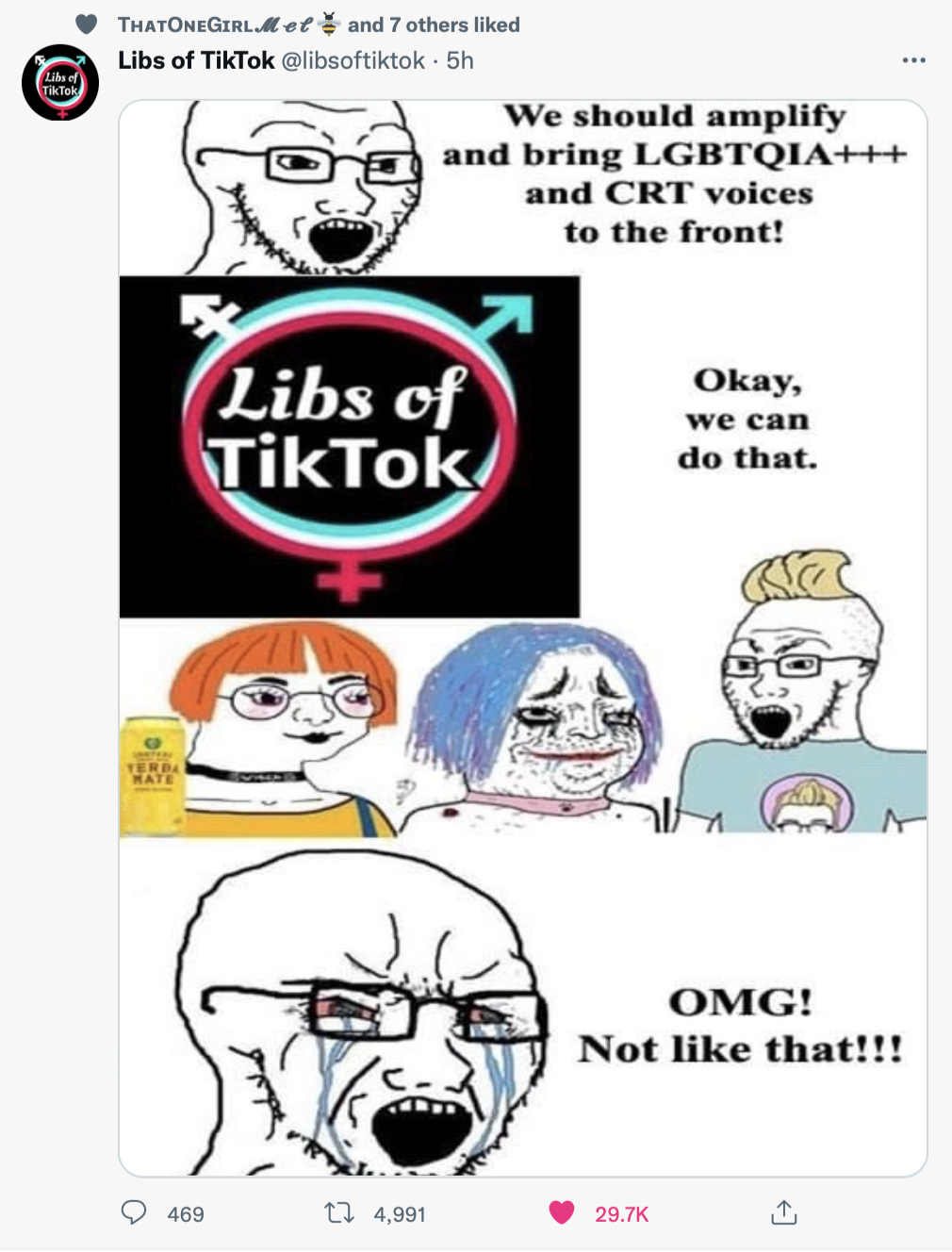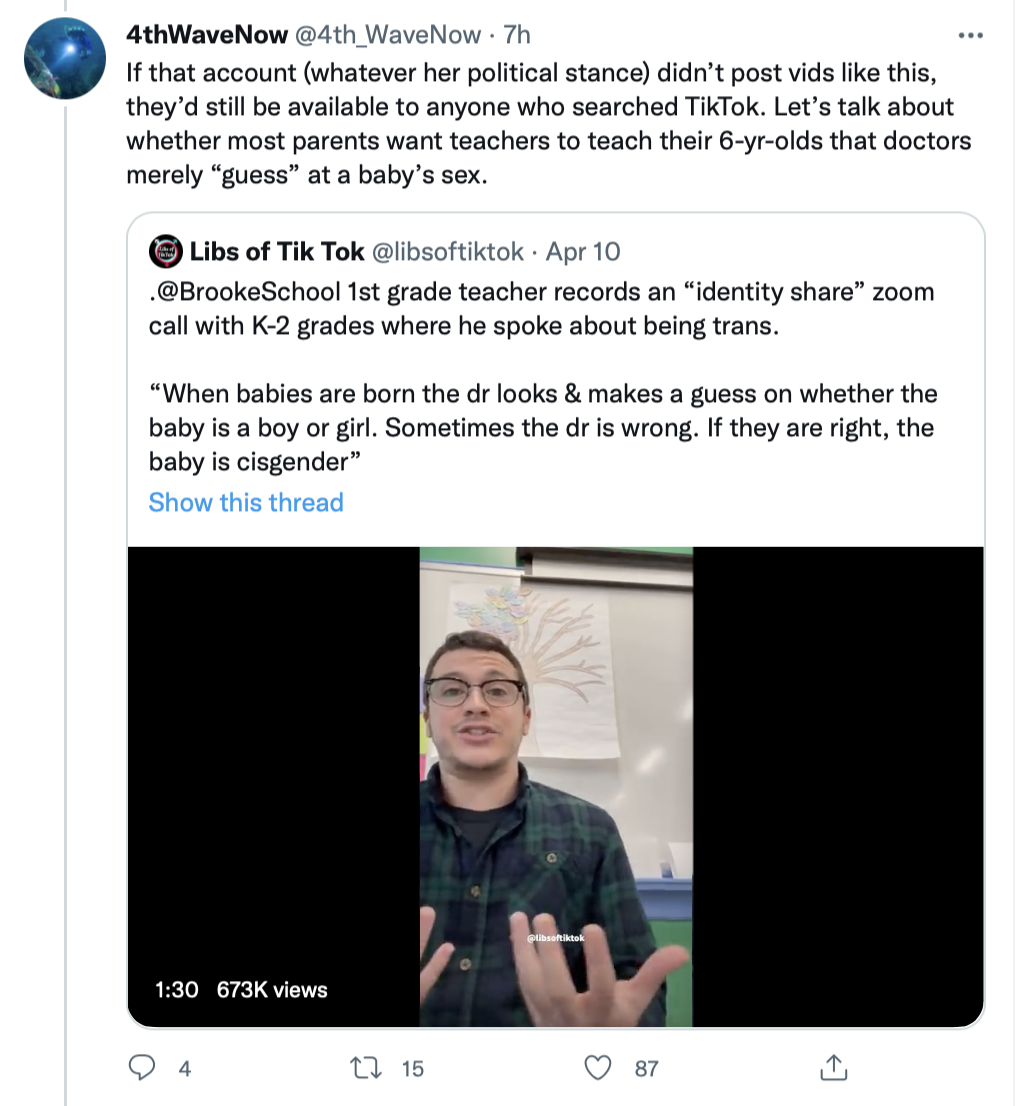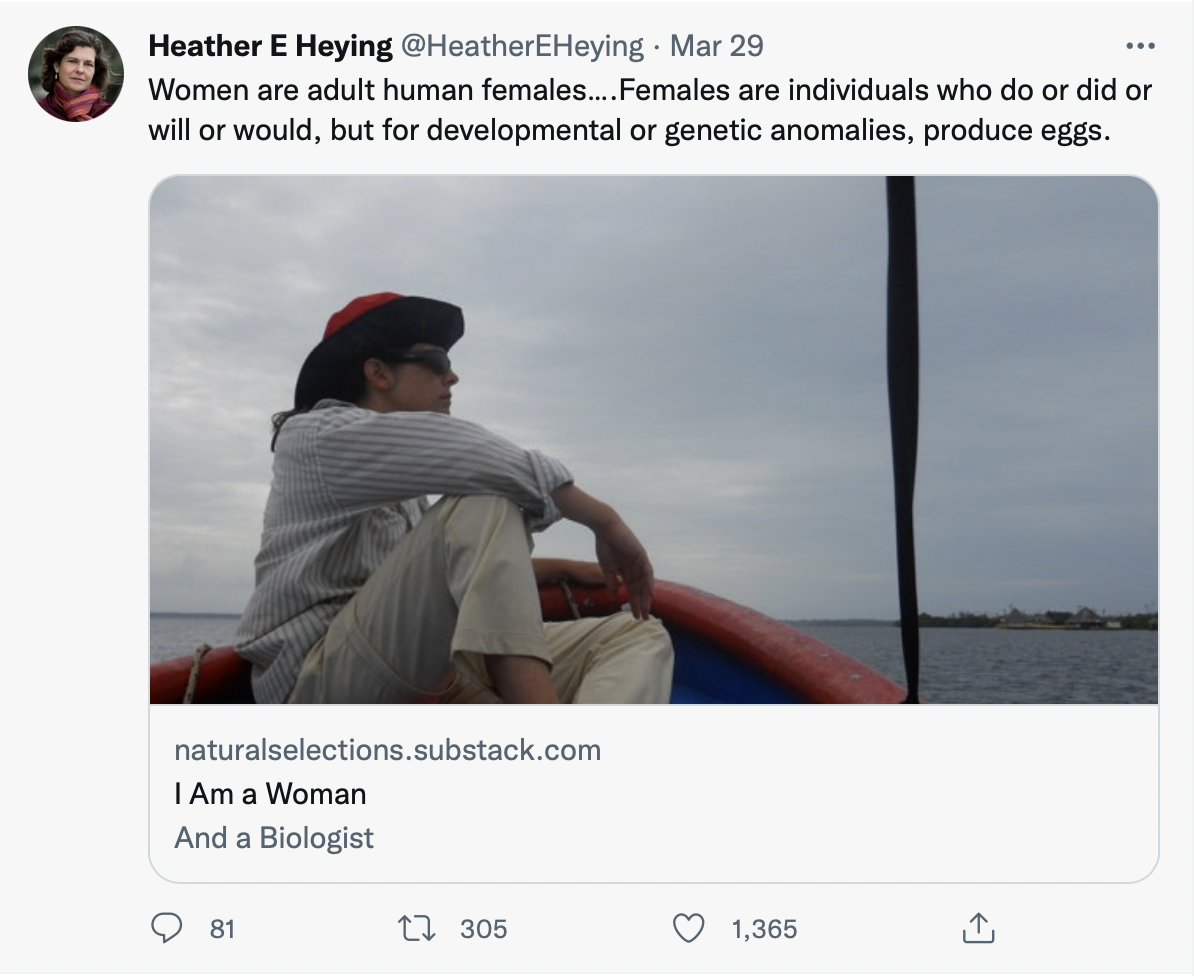The Conflation Strategy of the Political Far Left
At Real Clear Politics, Batya Ungar-Sargon explains what really going on in the Washington Post's bizarre framing of the Twitter account @libsoftiktok. No, she explains, this is not about Americans trying to gang up on L's, G's, B's or most T's. Here is an excerpt.
The question is why. Why is the left folding in the issues of an extreme minority of transgender activists and teachers into the larger fight for gay rights – one that’s already been won?It’s a similar case to what’s happened with the conversation of race. After winning the battle against real racism, the left moved the goalpost, redefining what counts as racism to the thing they most like to fight: the exposure of their own privilege.
That’s what’s happening here. A tiny elite that benefits politically and economically from portraying its opponents as bigots is using every tool at its disposal – social media, liberal legacy media, and executive action – to obfuscate the vast distance between their views and the vast majority of middle- and working-class Americans with normal views. Like the view that strangers shouldn’t teach toddlers how to masturbate.
Liberals had many major wins in the past 50 years. There was a time in the not-so-distant past when average Americans in either political party had little appetite for interracial marriage, let alone gay rights. But those days are long behind us. So why is the left pretending we are still in the midst of these fights? Because if you take away the issues that used to divide them from average Americans and no longer do, all you’re left with is what now divides them – the enormous economic, educational, and social capital that sustains the meritocratic liberal elite.
Here's what @libsoftiktok is actually doing: reposting bizarre tiktok videos made by teachers bragging about teaching things to children that are (rightfully) making many parents angry. These are simply completely undoctored reposts and not the tiktoc posters are being shamed for the things they are actually saying online. But they thought they would be left alone in their corner of the world, not thrust into the spotlight for all to see.



